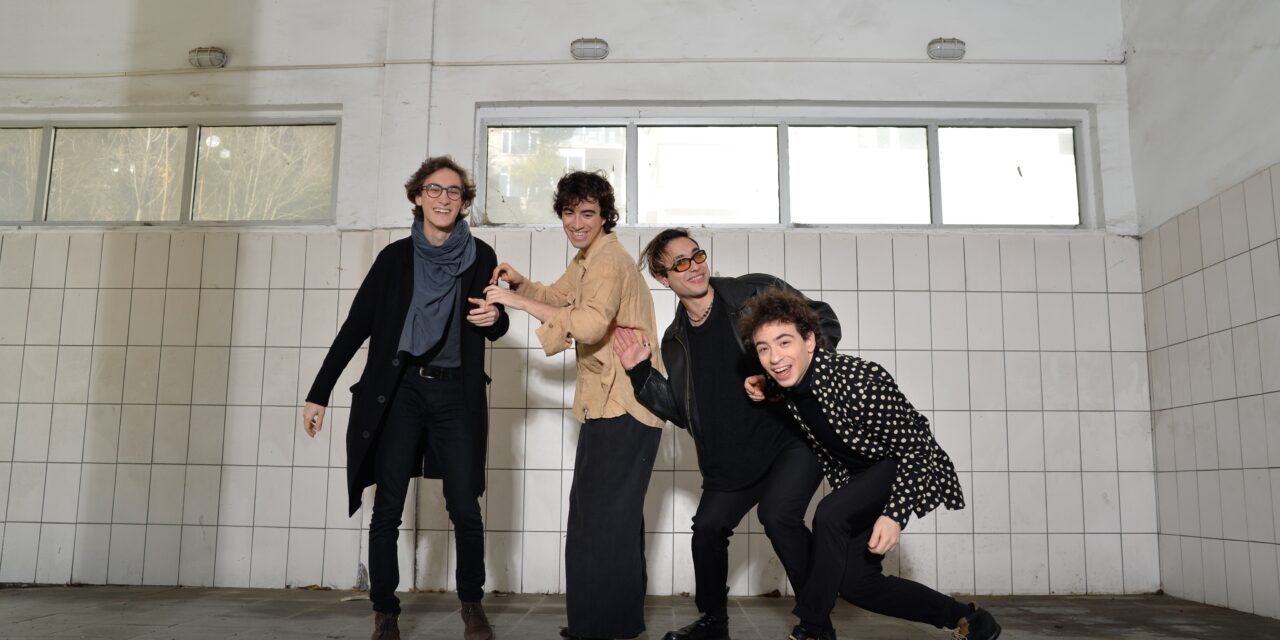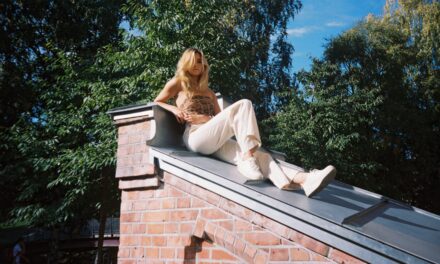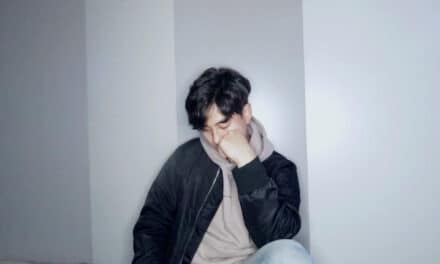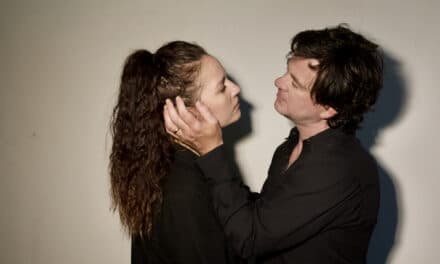Bits in Pockets is high school friends vocalist Arduman, guitarist Derin Dönmez, bassist Ata Tuna, and drummer Tibet Ahunbay. The quartet became an international and often online phenomenon, with members contributing from the UK and Canada while at college, between spells of feverish face-to-face creativity back in Istanbul.
Bits in Pockets’ name refers to those random yet soul-feeding scraps of nostalgia found forgotten in garments: ticket stubs from heady nights on the town; mementos of your first flat and all that it meant to you; detritus from cherished friendships, recalling chapters of raw, adolescent joy.
Bits in Pockets will release their debut EP, The Bits on April 29 via MMY Records.
What’s your story as an artist?
Derin: I started playing the piano when I was 6 years old. After 5 years of classical training I started a course to learn the electric guitar. In high school I started playing various stringed instruments such as the electric bass, double bass, classical guitar, and ukulele. I started playing in school orchestras as the main bassist. Around that time, we started a band with Tibet and two other friends with whom we jammed for hours. We then went on to record original tracks with Tibet. Producing new tracks, the computer became an essential tool for us. We recorded tracks that were a mixture of many genres, genres including ambient, alternative rock, electronic, jazz. We recorded a track as Bumuydu back in 2019. In the last years of high school Emre joined us at one of our jam sessions. He became an essential member of the sessions. Emre started writing songs that year and with Tibet, they began recording the demos of Sailed Away. I joined the band to play the guitar, produce and arrange the songs with Tibet. When away from the band, I record and perform improvised ambient electronic and techno music with some friends.
Emre: Well, it started out in the high school bus with our guitarist, Derin, sitting next to me. I would show him songs that I thought were cool, like Broken Bells and that, and he would look at me with a straight face and say ‘this is shit.’ So I got passionate about finding a song that he would like. It took a very long time, often lasting in the same neutral expression. So one day, I decided to look into ‘cool UK music’, as ‘UK Music’ sounded so mysterious to me. I had no idea. I then found this ‘Canterbury Rock Station’, and then I was like, oh Canterbury, that sounds so mystic. I then discovered this song ‘Ode to the Summer’ by Syd Arthur, which completely blew me away. Like it was experimental and I, who is a mere pop/rap listener, actually loved it. So I was like, Derin’s gonna love it. Next day on the bus, I showed him the song right, and finally, I saw head movement from him for the first time. He’s actually into the song. I’m waiting there listening with him, vibing with the song, waiting for what he has to say. So then, the songs over right, he looks at me, and says ‘this is good.’ I swear this was the biggest accomplishment of my life. From there it moved to bigger things, like I almost booked Syd Arthur a gig in Istanbul through a venue owner I know, then came Tibet, our drummer, and jams that took place in his house & father’s studio, then I went to London and actually met Liam Magill, the frontman of Syd Arthur, and so on and so on, but I would say Derin and the high school bus is personally the commencement of this process.
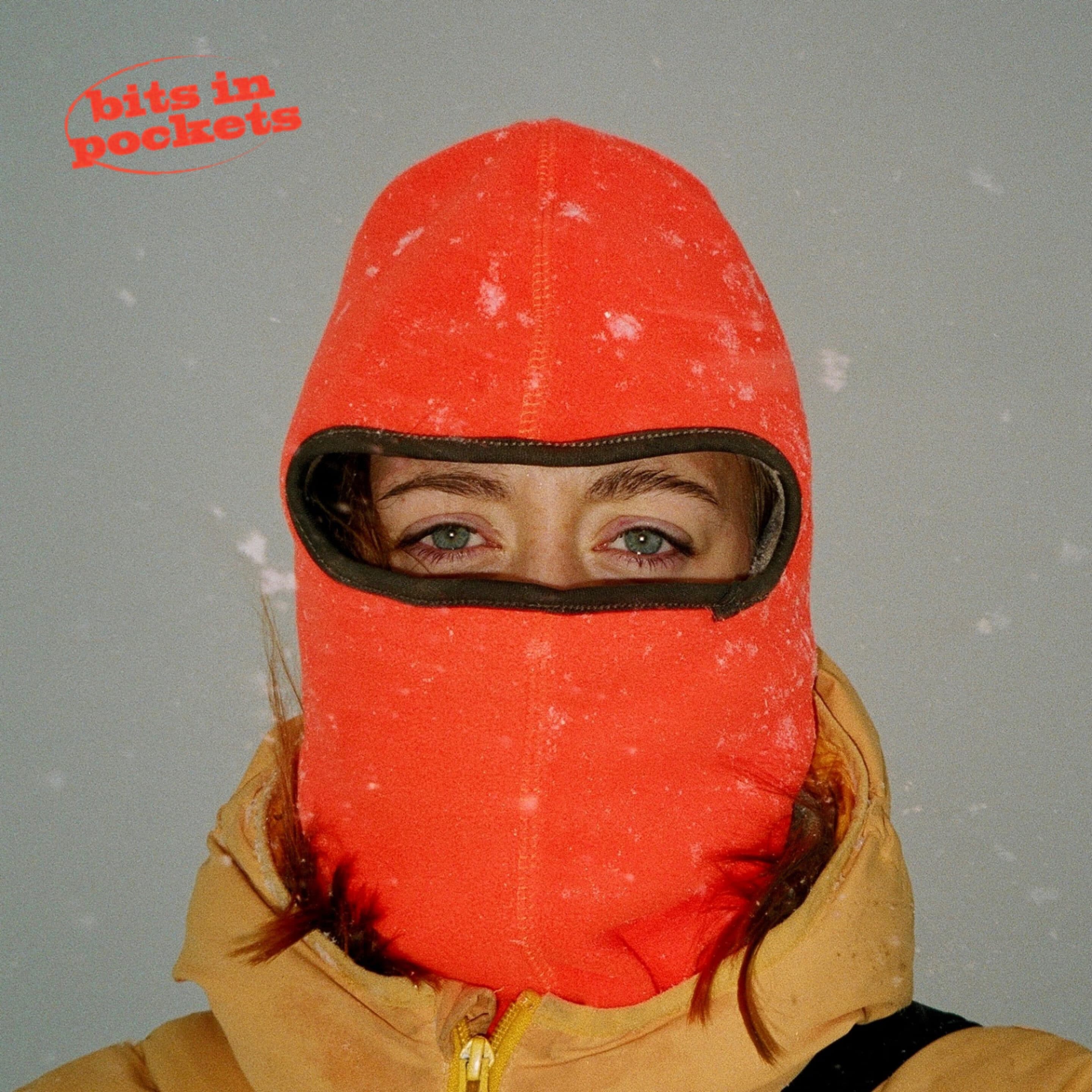
Ata: When I was about 9, one of the biggest revelations in my life was learning that I did not have to loop over the same 9 songs that came with the mp3 player. I could actually upload new songs to it! My uncle had a lot of CD’s. I burned them to my mp3 player and suddenly, was listening to Michael Jackson, Queen, Scorpions, ABBA, Beatles, Elvis, Radiohead… So I got the essentials from a young age. Then I learned to download songs from the internet. Things took off from there. I couldn’t stop listening. I don’t think my middle school friends ever saw me without my earphones. That was when I started playing the guitar. I joined the school band in 7th grade as a bassist because they didn’t have a bassist. Then the bass grew on me. I joined the orchestra in high school. We played Nina Simone, Queen, Led Zeppelin, Tony Bennett, Brooklyn Funk Essentials, Jamiroquai, TOTO… It was very tasteful. I really value what my time there. I got called to play with some bands from high school. Had a few gigs here and there. Emre came to visit us in one of our rehearsals. That’s where I’ve met him. Fast forward a few years, I got a call from Emre saying “Ata Tuna, I’m forming a band and I want you to be the bass player.” That was it.
Tibet: When I was just a kid, I would come home right after class and run straight to our family business headquarters, Jingle House, which is also the leading media music production company in Turkey. As I grew up in a community of industry professionals and artists, I developed a keen interest in all-things music. By jamming and engaging with artists from all walks of life and spending time with mentors that work there, I got myself into music production and composition. Having started drumming at the age of 10, I would compose music with my music teacher, Danny Lundmark, whom I learned how to jam and write music. We would also shoot video clips with him. Fast forward 4 years – I found myself in a high school cover band with Derin and two other friends. This led to me and Derin getting closer to each other as friends and musicians. I think we can say that our musical feedback to each other throughout the years really developed our musical skills. We ended up forming a duo together called, Bumuydu, as we released a jazzy/fusion track called Built Apart. While we were working on Bumuydu, we were jamming with Emre, and eventually, Emre started writing songs and asking for our feedback. After we all went our ways to study in different countries after high school, Emre came to visit me in Montreal for a month where we finished three demos. One of them was Sailed Away, which was produced when we all went back to Istanbul for the Christmas holiday. Before we went to Istanbul, Derin and Ata officially joined the band to form “Bits in Pockets” and it took off from there. It was funny how I and Derin never met Ata before the recording session in Istanbul.
What inspired your new EP, The Bits?
Emre: I would say a variety of things. Early Arctic Monkeys for sure, just the raw energy and the relentless, restlessness of it. For ‘Halfway Through an Episode’, I would like to credit a pub in Bethnal Green, as it wouldn’t have happened without it. I would say Julian Casablancas was a big inspiration, thinking of ‘Human Sadness’, ‘Call it Fate, Call it Karma’, and The Strokes’ new album was a big driving point, at least in my mind, lyrically and melodically, especially in ‘Wave On Backwards’. And overall, the pandemic for sure, as it has a pandemic feeling to it, crediting that essentially all these songs were written during the pandemic. King Krule too, for ‘Wave on Backwards’ and ‘Collette’ maybe, just the raw sound of King Krule in ‘The Ooz’ was a big driving factor.
Tibet: For me, the biggest inspiration would be the first two Arctic Monkeys albums. I grew up with them and making music inspired by these albums was on my bucket list as an artist.
Do you get inspired by other art forms?
Derin: I get inspired a lot by movies and photography. I like to imagine the sounds of visual artworks.
Emre: No, not really.
Tibet: I get inspired from muted videos, not necessarily movies. I love to mute visuals and imagine sounds that could go well with that.
Any funny anecdotes from the time you were recording or writing this?
Emre: I would say ‘Collette’ was funny, in terms of how we came up with the song name and cover photo. It was just Ata saying, ‘the song needs an edge, like it’s not there yet, what’s the name of the girl? Who are you talking about?’ to which I responded impromptu as ‘Collette’, and we were like, YES, this is it! Same thing with the cover photo, Ata was wearing a purple shirt, and he had a pose that looked so innocent, and I took his picture, and we said ‘that’s the cover photo!’, to which Emilie Vandenbegine, our cover girl, has mimicked into our cover photo.
Tibet: I always found Ata’s health hacks funny. He would buy 1kg of mint and eat it all in one go in the studio, while me watching him eat in silence. After that, he would have so much energy and be able to record his bass lines very well. Also, Emre and Ata would sometimes eat one big raw onion in one go. Apparently, it makes you feel good after. Crazy guys.
What’s your favorite place or environment to write?
Derin: For me, it’s always right there in the studio. I tend to come up with ideas at the time of recording.
Emre: It really depends. It can be different each time, like the place, the environment, the weather, everything. I don’t have a stable residency, so I can’t say I have like a private room, or anything of the sort. So, I have a nomadic approach to writing. I think a ‘home’ can be burdening, like it swallows you up. Writing where you sleep, not good, but not always, so I don’t really know. Rather than an ‘environment’ I would say a ‘mood’ dictates more than the environment. If you’re in the ‘mood’, if you’re feeling it, you can write anywhere. Like it wouldn’t matter. My favourite places have been my dorm at LSE, outdoor seating at a corner cafe in Paris, and an Airbnb I stayed at during the pandemic, where I wrote Halfway through an Episode. But yeah, there’s not really a consistency to it, I can’t really favour one over the other, they were all good in different ways.
Ata: I usually write on a napkin.
Tibet: As I take on more of the producer role, I prefer to write stuff in my DAW. There I can see which instrument goes where and fill in the gaps easily in a more creative way.
What’s a record that shaped your creativity?
Derin: Although there are many records that shaped my creativity, one of them for the last year has been Floating Points’ album Promises. It’s a work like no other. It reminded me of the first tracks that I made with Tibet years ago. It’s both complex and full of feeling.
Ata : Led Zeppelin I
Emre: “On an On” by Syd Arthur
Tibet: For me, Radiohead’s “Hail To the Theif” album has had the most impact on my creativity since high school. It made me rediscover the limits of sound and composition.
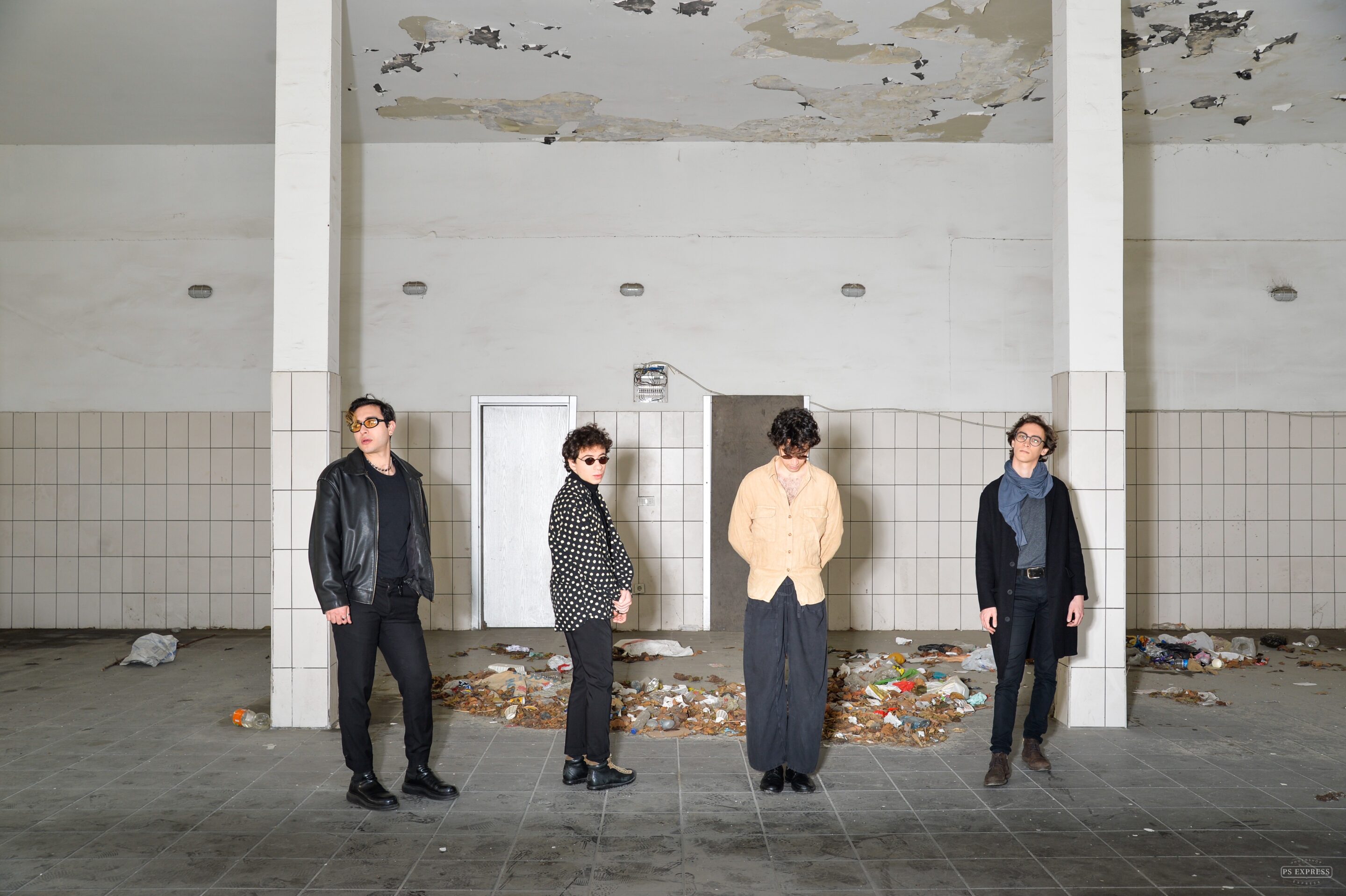
Who is an artist or band you look up to today?
Derin: At the moment, Venerus is my musical idol and I feel as though I will be looking up to his work for a long time.
Emre: John Lennon for sure. Liam Gallagher and Alex Turner for sure. Stone Roses for sure. 50 Cent and Justin Timberlake.
Tibet: I think for Bits in Pockets we look up to Arctic Monkeys, Bloc Party, Cage The Elephant, and Radiohead the most – however, we all listen to and make other genres of music too. UK jazz is one topic that we talk about a lot together – names like Alfa Mist, Yussef Dayes etc.
Ata: Floating Points.
What excites you the most about what you do?
Derin: Playing music is the best form of meditation for me. Watching and hearing other artists, trying to understand what their works mean to them, how they were feeling at the time of writing/painting/etc. excites me for everything in life.
Ata: Inexplicable bursts of creativity and moments of ‘locking in’ together with the band.
Emre: Prospect of playing our songs live excites me the most.
Tibet: For me, 2000s UK rock has a special place in my heart. I grew up with Arctic Monkeys’ first album, “Whatever People Say I Am, That’s What I Am Not”, so being able to make that kind of music, but with a modern gist means a lot to me.
What is your view on genres and music styles since you mix a lot of them in your music?
Derin: I believe that to make a song sound authentic the musicians should mix styles and genres. I am never confident if a track that I make is labeled solely as rock or jazz or techno etc.
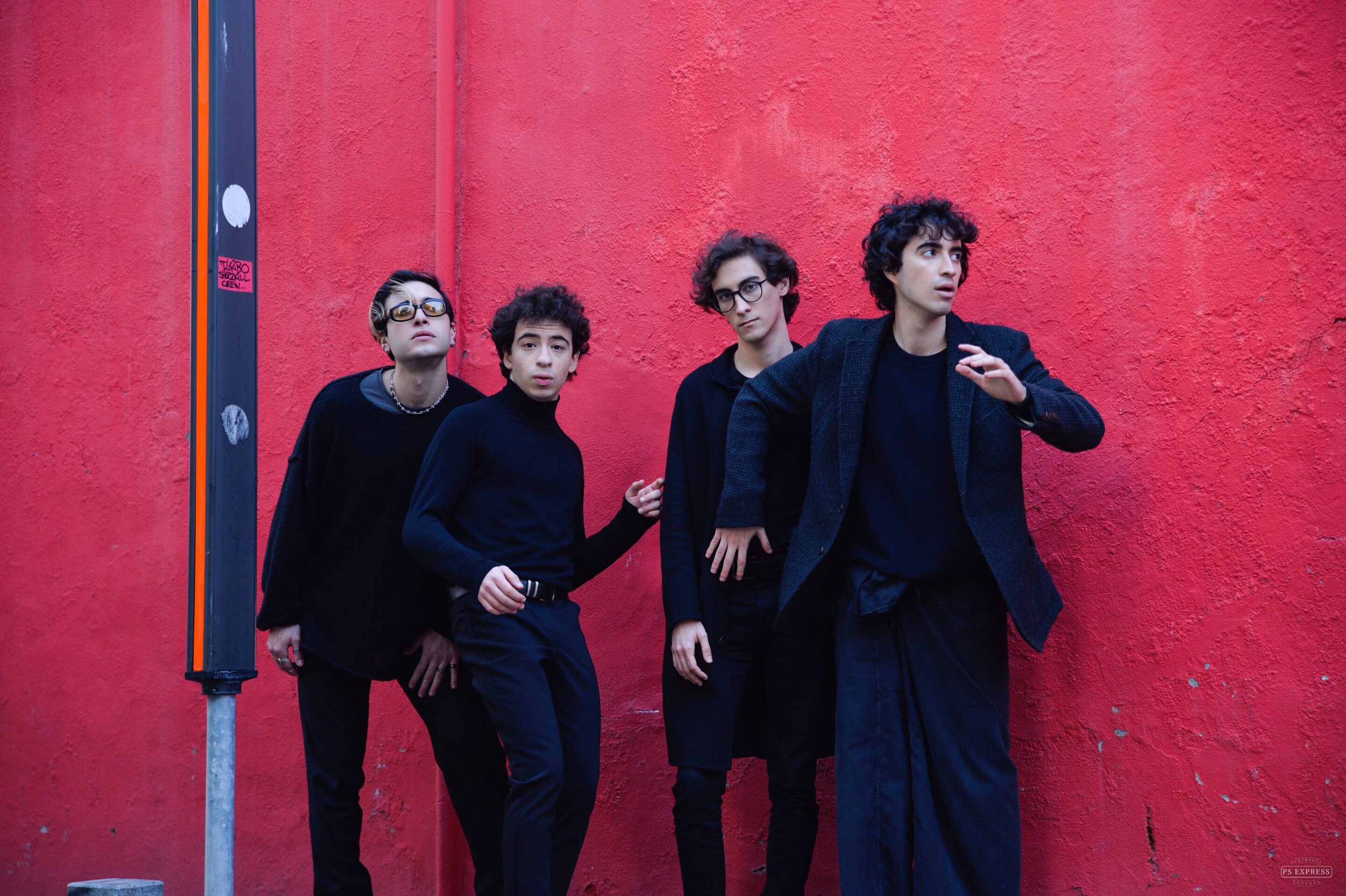
Ata: I don’t think we mix a lot.
Emre: I think the fact that it’s mixed has to do more with the different backgrounds we come from, as a band, rather than individually being ‘diverse’, if that makes sense. We all have a very different musical palette, which I think reflects in the music we make.
What does music and art mean to you?
Derin: It’s a burst of the feelings that are inside.
Emre: Everything. It is a reflection of what could be possible. What is great about the world. It opens doors no door could open. It opens the gates to possible universes, of feeling and emotion, of real things.
Ata: Going somewhere I’ve never been to on my emotional landscape.
Tibet: Answers to the emotions that I am feeling and an introduction to niche emotions that I have yet to figure out
How would you describe your act in one word?
Derin: Dynamic
Emre: Bongolicious
Tibet: Energy!
Ata: slaps

